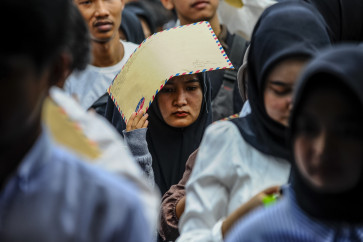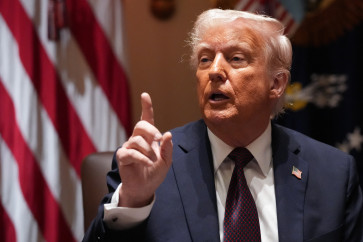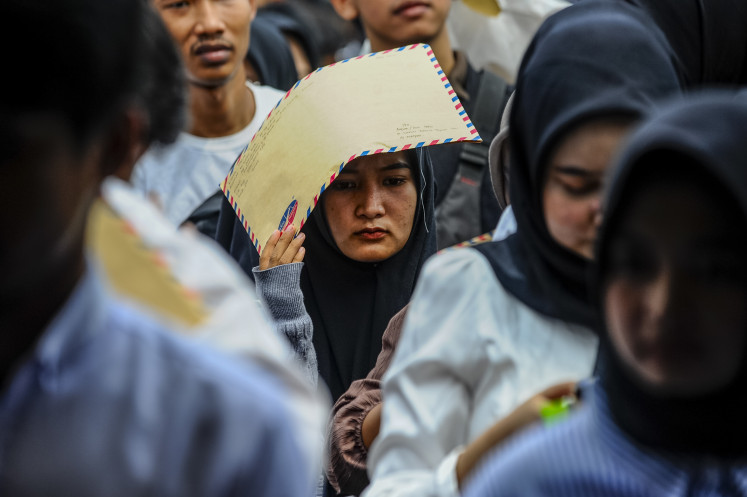Ministry formulating long-term policies on minerals, coal
The Energy and Mineral Resources Ministry is working with mineral and coal industry players to formulate long-term national guidelines that are expected to give a clear future direction to the management of the countryâs abundant resources
Change text size
Gift Premium Articles
to Anyone

T
he Energy and Mineral Resources Ministry is working with mineral and coal industry players to formulate long-term national guidelines that are expected to give a clear future direction to the management of the country's abundant resources.
The ministry's directorate general for minerals and coal held a consultancy forum on Tuesday with related industry groups to discuss the future of the nation's mineral and coal policies.
'The policies are expected to guide our resource development. They will represent the thoughts, consensus and aspirations of stakeholders. This will highlight what the country wants from its minerals,' mineral and coal director general R. Sukhyar said after the meeting.
The guidelines are expected to be completed before the new government takes office later this year. An outline of the policies is expected to be completed by July or August, and will be signed by the current government.
As a country considered to have plentiful natural resources, Indonesia has seen the exploitation of those resources.
The country is the biggest thermal coal exporter although its coal reserves are only 0.6 percent of the world's reserves, according to figures from the mineral and coal directorate.
When global prices jumped, the country's coal production rose to meet global demand, but when prices slumped, production kept rising as coal producers pumped out output volume to offset the declining price.
Coal production reached 421 million tons last year, more than double the output in 2004 at 130 million tons, government data shows. Only 72 million tons were sold to the domestic market while the remainder went abroad. The export of minerals such as bauxite and nickel have also grown in recent years.
National mineral and coal policy guidelines would also cover milestones that companies had to achieve in a certain period, according to Budi Santoso, the coordinator of the Association of Indonesian Mining Professionals (Perhapi) and the Indonesian Geologist Association's (IAGI) national mineral and coal policies consultancy team.
'We have no milestone of smelter development but have asked mining companies to develop the facilities. We should not see that happen because all processes must see the economic side,' Budi said.
Budi was referring to the government's policy under the 2009 Mining Law, which requires mining companies to process their minerals into metal products in domestic smelters before selling them overseas. The regulation, which aims to boost Indonesia's downstream industry and make the country a producer of value-added products, resulted in the ban of mineral ore exports starting Jan. 12.
Mining companies have criticized the law, saying that building smelters is not economically feasible and that the government has failed to provide support, such as electricity availability and other infrastructure.
In the meeting between ministry and industry players, several topics were discussed, including the direction of mineral and coal management that requires accurate and updated data on mineral and coal resources, conservation as well as the industry's contribution to economic growth, according to Budi.
Other topics included industrial development, the state's role in the management of mineral and coal outputs, as well as relations between the central and local government, he added.
Syahrir Abubakar of the Indonesia Mining Association said there would likely be mismatches between planned policies and the current regulations.









